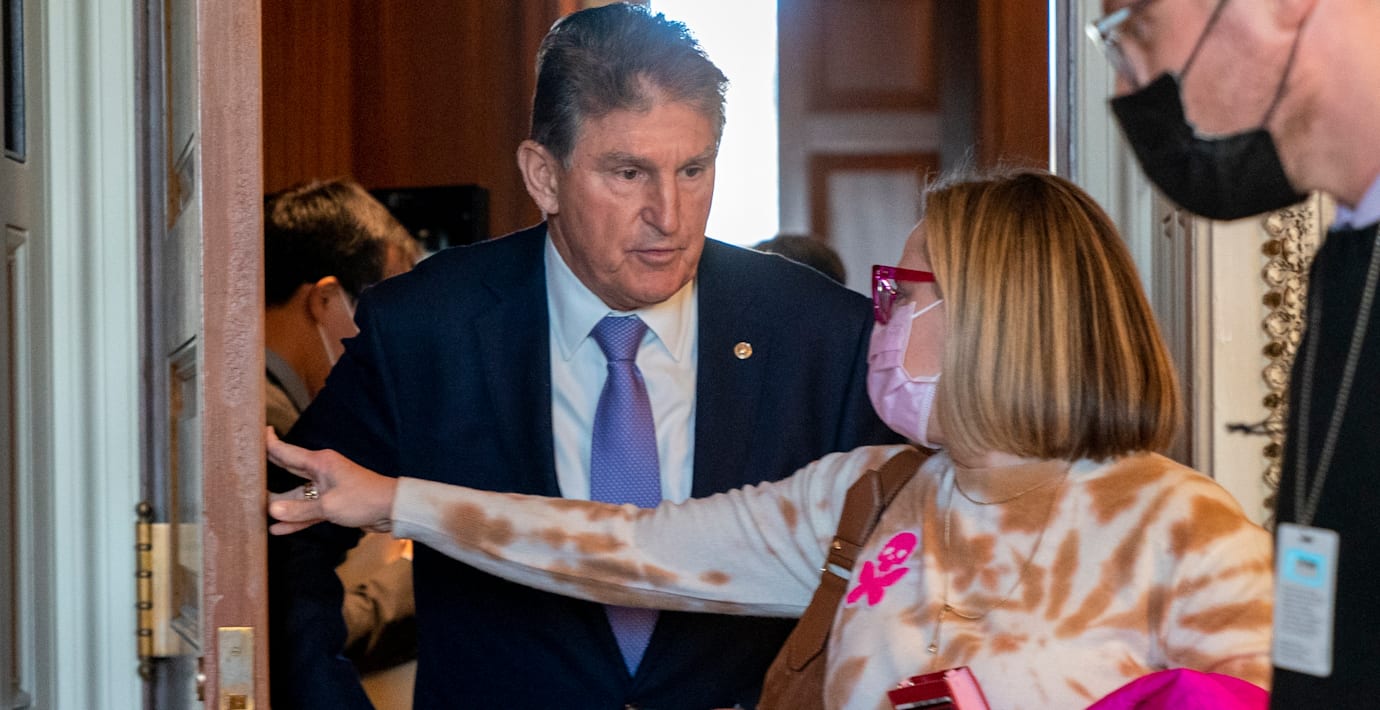
Demokratrebeller stoppar Bidens valreform i senaten
USA:s president Joe Biden drabbades av ett bakslag när hans förslag om valreformer stoppades i senaten i natt. Biden har hävdat att lagändringen är nödvändig för att skydda USA:s demokrati.
För att få igenom förslaget krävdes 60 ja-röster på grund av de så kallade filibusterreglerna. Demokraterna försökte då få till en modifiering av filibustern för att en enkel majoritet skulle räcka. Detta stoppades dock av de två demokratiska senatorerna Joe Manchin och Kyrsten Sinema.
”Jag är mycket besviken över att senaten har misslyckats med att stå upp för vår demokrati”, skriver Biden på Twitter.
bakgrund
Filibuster
Wikipedia (en)
In the United States Senate, a filibuster is a tactic employed by opponents of a proposed law to prevent the measure's final passage. The filibuster has undergone several changes over the course of the 20th century due to modifications of the Senate rules. Originally, the possibility to filibuster was accidentally introduced as a side effect of an 1806 rule change which eliminated the ability to end debate in the Senate by a simple majority vote. Thus, the minority could extend debate on a bill indefinitely by holding the floor of the Senate, preventing the bill from coming to a vote. However, the filibuster was used relatively rarely until the civil rights era. Senator Strom Thurmond as a member of the Democratic Party, famously filibustered the Civil Rights Act of 1957 for more than 24 hours. Democrats led by Richard Russell Jr. famously held up the passage of the Civil Rights Act of 1964 for 60 working days using the filibuster. In the 1970s, the Senate adopted a "two-track" system, which was intended in part as a progressive reform to prevent filibusters from completely blocking Senate business. Under these new rules however, legislation could be blocked simply by submitting a written notice of intent to filibuster. Thus, this rule change inadvertently introduced a supermajority requirement to the Senate, since it became possible for the minority to filibuster legislation without having to physically hold the floor of the Senate.
A number of laws have been passed to limit the scope of the filibuster by explicitly limiting the time for Senate debate, most notably the Congressional Budget and Impoundment Control Act of 1974 that created the budget reconciliation process. Moreover, changes to Rule XXII in 2013 and 2017 now require only a simple majority to invoke cloture on presidential nominations, although most legislation still requires 60 votes. These rule changes were made by invoking the so-called "nuclear option", a parliamentary procedure that allows the Senate to override one of its standing rules, including the 60-vote threshold to close debate, by a simple majority vote (≥ 51 votes, or 50 votes with the Vice President casting the tie-breaking vote), rather than the two-thirds supermajority normally required to amend Senate rules.
Omni är politiskt obundna och oberoende. Vi strävar efter att ge fler perspektiv på nyheterna. Har du frågor eller synpunkter kring vår rapportering? Kontakta redaktionen


